Search
Showing 10 of 1803 results for NARSC 2016 July student registration fees
-
New Zealand Global Competence Certificate programme proves a hit
What is New Zealand’s Global Competence Certificate programme?
The customised cultural exchange programme, which started as a pilot partnership last year between New Zealand’s international education agency, Education New Zealand Manapou ki te Ao and AFS Intercultural Programs, Inc. has proved so successful it is now being extended and taken up by schools and tertiary institutions around the country, connecting them with students in Asia and Latin America.
The “Kiwi way” has much to offer the world, and international education has much to offer New Zealanders at a time the world needs people with cross-cultural competencies. The New Zealand Global Competence Certificate, delivered through Massey University, develops cultural self-awareness, emotional resilience, and build bridges across cultures. It also piques the interest of students offshore in coming to New Zealand in better times.
The programme delivers animated videos, quizzes, assignments, and weekly live facilitated dialogue sessions for learners to talk with each other online in real time and learn about life from perspectives other than their own.
What have students been saying about the NZGCC programme?
“Not only have I learned to become a better communicator, empathiser, and global citizen, but also how a group of like-minded individuals can come together to form something bigger,” says Jack Hittle, of Northland’s Springbank School.
“I found the programme life-changing,” says Vaagisha Kanwar, a Year 11 student at Indus International School in Bangalore, India, who connected with the Northland students. “We learned about conflict, empathy, inequality, different communication styles, how different people adapt to new situations, and about suspending judgement. I know that I’ll use the skills we’ve learned for the rest of my life, not just when I travel abroad but also in daily life.”
"You see the way a culture greets each other or the way they dress, but then there are things like relationships, gender roles, and health,” says Whanganui Girls College student Tilda Donson.
What have educators been saying about the NZGCC programme?
Whanganui Girls College Principal Sharon Steer is delighted with the NZGCC programme, which she says will help students build their understanding of global cultures, and other critical “soft” skills which will prepare them for life as they enter the workforce.
“An important part of our curriculum is developing strong communication skills and setting our students up for success in the workplace. The NZGCC programme will add another dimension to our lessons by teaching our students how to develop meaningful relationships with one another despite language and cultural differences.”
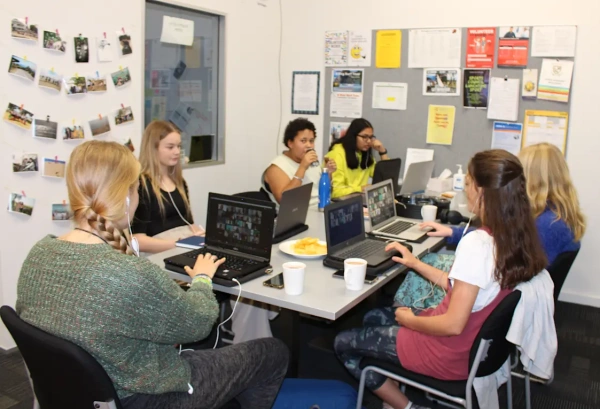
Educators say that with the borders closed, the programme now forms an important part of the reshaped international education experience.
“It is so important that our students don’t miss out on the enriching life skills that are gained when we interact and connect with people from around the globe,” says Whangarei Girls High School International Director Amelia Morrison, who has students working with peers in India.
"Global competence is mission-critical for our world," says AFS Intercultural Programs President and CEO Daniel Obst. “Educating more young people to become global citizens is crucial if we want to create a more just and peaceful world.”
The expansion of the GCC programme reflects the diversification of education in new virtual forms fit for a globally connected world, says Education New Zealand Chief Executive Grant McPherson.
“As well as helping to develop the global citizens of tomorrow, this programme demonstrates the reciprocal benefits of international education, giving our rangatahi a chance to learn with high school students from around the world, and giving their offshore peers a chance to learn ‘with’ New Zealand and our unique way of thinking.”
-
Massey student’s robotic gut capsule could be a game-changer
Millions of people globally die every year from gut-related illnesses, and many more live a life of suffering, yet diagnostic tools remain quite rudimentary.
Arriving from Pakistan as an international student in 2018, armed with a BSc and MSc in Electrical Engineering, Rehan was excited to join the Microbiotics Lab at Massey University. There he accelerated early work on a micro capsule which could be swallowed and was able to collect samples of the microbiome in specific parts of the gut.
Unlike the poop in a jar method, the capsule’s targeted sampling provides a much more detailed analysis, allowing for earlier diagnosis of killer diseases such as cancer and diabetes and easier treatment of inflammatory conditions like Crohn’s and coeliac diseases.
Early treatment of gut disease can save lives
Treating disease early reduces complications and saves lives. And with the capsule expected to be quite affordable to produce, developing countries could share in the benefits it would bring.
“It is a huge step forward. There are so many advantages and applications,” Rehan says. “The gut is still a bit of a mystery, but the micro-organisms that live there can tell us a lot about our health.”
While an endoscopy camera capsule can take images, it has limitations, and clinicians are excited by the prospect of having such a sophisticated but easy-to-use device to help with diagnosis, Rehan says.
Research project shows commercial promise
What started as a research-oriented project is showing commercial promise. And not just from doctors. Rehan has also had interest from the veterinary sector, and nutritionists keen to better understand nutritional absorption.
The next step is to hone the final details of the capsule design and apply for patents. Once he has ethical approval, he can begin testing in animals. He expects that to be within months.
Rehan is proud of what he has achieved since arriving in New Zealand with his young family three years ago. He says he could have gone to the UK or US, but chose New Zealand based on recommendations by friends already studying here, who described the research environment for international students as open and collaborative. He was also excited by the work being undertaken in microbiotics by his supervisor Ebu Avci and was keen to be involved.
Collaborative environment makes for impactful outcomes
“I’ve valued the network of like-minded people I’ve developed and know that I’ll have a supportive community to call on when I’m no longer in New Zealand,” he says. “The easy collaboration with other universities and organisations such as Callaghan Innovation and MacDiarmid Institute also makes the research and outcomes more impactful.”
Such is the life-saving potential of Rehan’s gut capsule, that he was selected to represent New Zealand last month at the International Falling Walls Lab competition in Berlin, Germany. The competition provides a platform for early-career innovators to present, in a three-minute pitch to a jury of experts from academia and business, how they might fix pressing global challenges. Rehan had to compete remotely and wasn’t the ultimate winner but says he it was a great opportunity to network and learn from other research developments going on around the world.
Rehan plans to spend next year writing his thesis before returning to Pakistan. Funded by his government to study internationally, he is conscious of the need to return home to share his skills and knowledge but has not ruled out returning to New Zealand to undertake further research in the future.
-
New Zealand strengthens its position as a study abroad destination for Brazilians
Figures from the 10th annual Brazilian Educational and Language Travel Association (Belta) Seal Survey 2025 show that New Zealand has climbed to the sixth most chosen destination by Brazilians studying abroad – compared to seventh place in 2024.
The survey ran from February to April this year and brought together insights from 586 education agencies and 1,780 students from across Brazil to understand trends, behaviours, and preferences in the international education sector.
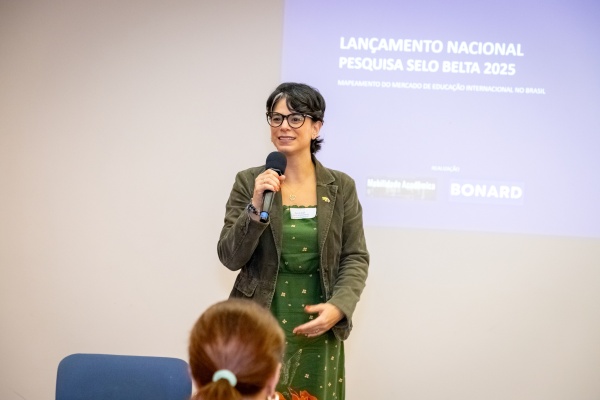
At the survey launch in May, ENZ Market Development Manager, Bruna de Natale, discussed the country’s growing relevance as a study destination for Brazilian students.
Speaking at the survey launch event in May, ENZ Market Development Manager, Bruna de Natale said "The data shows that New Zealand has not only maintained its appeal but has also strengthened its position on the radar of Brazilian students, especially amid uncertainties in other markets."
Dive into the data
Language courses remain the most sought-after programs, accounting for 91% of preferences among the agencies surveyed.
Why Brazilian students are choosing New Zealand
According to the data, the main factors driving the choice of New Zealand as a destination are:
-
High quality of life and safety
-
Academic excellence with a focus on innovation
-
Ease of obtaining a student visa
-
Permission to work while studying
-
Economically and socially stable environment
In addition, the growing demand for enriching cultural experiences, closer contact with nature, and the opportunity to develop socio-emotional skills has placed New Zealand in the spotlight — particularly among students who value a comprehensive education.
Additional insights from New Zealand-focused questions
A complementary survey, also conducted between February and April 2025 with 586 education agencies and 1,780 students across Brazil, highlighted specific factors influencing the decision to study in New Zealand.
The survey revealed that 75% of respondents who showed interest in New Zealand also considered it one of their top study destinations — ahead of countries like the United Kingdom and Canada. Students associate New Zealand with high-quality education, a good international reputation for its institutions, and globally recognised qualifications.
Additionally, New Zealand stands out for offering work opportunities during and after studies, socio-emotional skill development, and access to nature and outdoor activities — these factors align with current student preferences for holistic and life-enriching study abroad experiences.
If Brazil and/or any other Latin American country is part of your business plan for the 2025/26 financial year, please contact the in-market team via Latinamerica@enz.govt.nz.
-
-
From the CE: New Zealand higher education in the spotlight
Kia ora koutou,
Over the past few weeks, I have been abroad in both China and the United States promoting New Zealand education.
In late May I was delighted to attend my first NAFSA conference in San Diego, California. NAFSA is the world’s largest international education conference and this year it attracted over 8,000 attendees. ENZ supported the University of Auckland, Auckland University of Technology, University of Waikato, Massey University, Victoria University of Wellington, University of Canterbury, University of Otago and Whitecliffe College at the New Zealand Pavilion. Our collective involvement with such a significant event provided us with a strong platform to showcase New Zealand’s unique education offering to a global audience.
Following NAFSA, I travelled to Connecticut to meet representatives of the Mashantucket Pequot nation, during which I had a useful exchange on indigenous-to-indigenous education and engagement. It was a genuine privilege to be hosted by this small, resilient tribe, into which my whānau has whakapapa links.
Last week, I joined the Prime Minister’s Trade Mission to China alongside education delegates from UP Education, Te Pūkenga – New Zealand Institute of Skills and Technology, and Victoria University of Wellington.
The Trade Mission was an opportunity to support the tertiary education sector’s engagement with China which is our largest source market of international students. The visit also reinforced at the Government and sector level our strong bilateral education relationship.
One of our key deliverables was an education event to promote New Zealand’s reputation for world-leading research and high-quality education at Fudan University in Shanghai. Fudan is one of China’s most prestigious universities and while there we took the opportunity to celebrate 20 years of the New Zealand-China Tripartite Partnership Programme. A wonderful outcome from the event was the signing of an MoU between Victoria University of Wellington and Fudan University that will see the universities resume student exchanges and pursue research cooperation in public health, biotechnology and climate science.
In Beijing, we hosted New Zealand Education Connect and showcased New Zealand as a study destination to our key partners, and alongside Prime Minister Rt Hon Christopher Luxon, we officially launched New Zealand’s Country of Honour campaign for the China Annual Conference and Expo for International Education (CACIE) which will be taking place later this year.
Finally, this month the results of the latest QS World University Rankings 2026 were published. New Zealand ranked first in the English-speaking world and fifth globally for the overall quality of its higher education.
The 2026 results see New Zealand universities improve across academic reputation, citation per faculty, and international student indicators. New Zealand also ranks the highest globally in terms of employment outcomes among key English-speaking study destinations.
This is a fantastic result for our universities and reinforces New Zealand’s position as a high-quality and welcoming international education destination.
Whāia te mātauranga hei oranga mō koutou
Seek after learning for the sake of your wellbeing
Ngā mihi nui,
Amanda Malu
Chief Executive -
New Zealand’s EdTech at centre-stage of International Education
Export digital products and services have long been an important element of New Zealand’s international education sector, but they have largely flown under the public radar. Overnight, the needs of learners changed, and education providers found themselves in uncharted territory.
New Zealand companies with an established reputation delivering digital educational programmes quickly stepped up both the range and reach of their products. This, combined with Aotearoa’s reputation for creativity and innovation, and more than a little manaakitanga, has resulted in the phenomenal growth of some of our best-known EdTech brands over the past year.
Kami is helping Schools Globally
At digital online learning platform Kami, the goal is success for every student, regardless of ability, by providing inclusive and intuitive tools that support any learning style. They include text-to-speech, voice-typing, freehand drawing, and audio and video commenting.
Many of the schools which closed globally adopted Kami’s digital classroom technology. The company has grown from 8 million to 27 million users in 180 countries over the past year, adding one million new users in one week alone.
Code Avengers taps into the popularity of Gaming
Code Avengers takes a left-field approach to engaging learners by tapping into the popularity of gaming and uses those concepts to captivate students and build their digital capability. The platform was only founded in 2012 and is now being used in 15,000 schools in 14 countries.
“Our goal is to prepare teachers and students, from all backgrounds, for the current reality of the job market, and the jobs of tomorrow,” says Code Avengers CEO Hamish Day.
“We want to help give people confidence and an opportunity to learn the skills that industry tells us it needs.”Education Perfect are inspiring the next Generation of Changemakers
EdTech providers also have the power to engage students on social issues and challenge them to think critically. Key market player Education Perfect, which reaches more than one million students in 1800 schools globally, is finding new ways to inspire the next generation of changemakers.
It is building curriculum content to include issues such as social justice, sustainability, student health and wellbeing, and indigenous issues. It recently partnered with Australian animal rights organisation Voiceless to deliver modules focused on animal welfare, including the issues of dolphins living in captivity and the export of live animals.
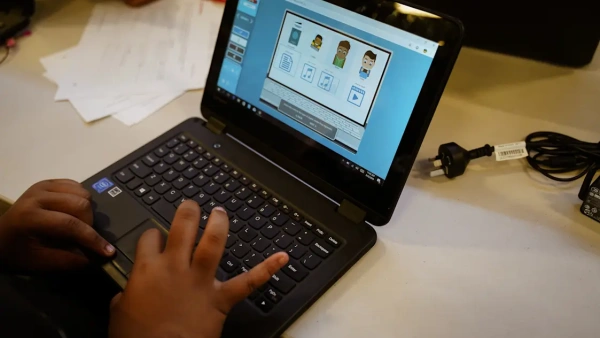
EP Partnerships Director Anna Redmile says that joining forces with Voiceless allows teachers and students to have conversations which promote critical thinking and better understanding of the world they live in.
Education consultant and Voiceless adviser Dr Christina Jarvis agrees. "As we help children embrace an increasingly complicated future, such skills are paramount for developing engaged citizens.”
EdTech will continue to play a key role in New Zealand’s International Education Offering
The EdTech sector was estimated to contribute $300 million to the New Zealand economy in 2017, and those figures will have ballooned with the impact of Covid.
Looking to the future, educational technology will play an increasingly key role in the diversification of New Zealand’s international education offerings. And there is no shortage of amazing and pioneering companies ready to play their part.
-
Patrick Au: a champion for international students in New Zealand
He has spent more than two decades working with international students and Asian migrants in primary and tertiary healthcare settings, understanding their mental health needs and advocating on their behalf.
Patrick is a registered psychiatric nurse and counsellor who migrated from Hong Kong in 1991, completed his Master’s in Education in 1999, and has worked tirelessly to support Asian communities in New Zealand. He is now stepping down from his role as Asian Mental Health Coordinator for the Auckland District Health Board to commit more time to private practice.
It was Patrick’s emerging reputation for specialty expertise which led to the International Education Association ISANA asking him in 2010 to prepare a presentation to international education providers about the mental health needs of international students. This was quickly followed by a contract with the Ministry of Education to present a series of workshops nationally.
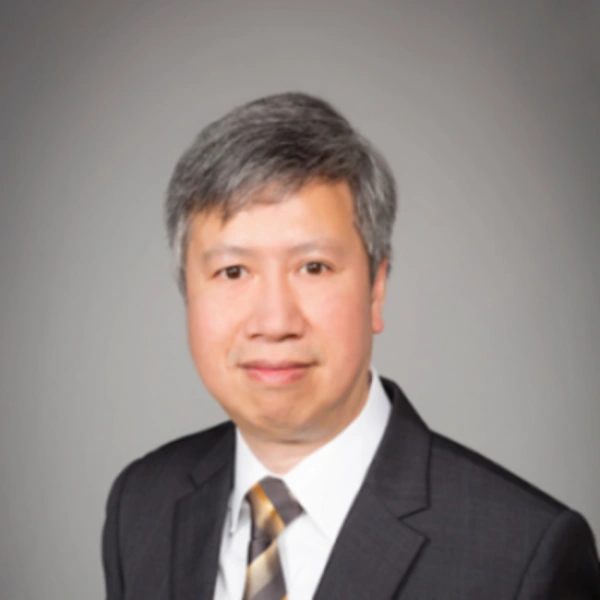
“I was overwhelmed by people calling me and asking me for advice,” Patrick says. “This is where I seriously started my work with international students.”
In more recent years, Patrick has been a key player in the Auckland Agencies Group, which brings together multiple organisations with the common goal of enhancing student wellbeing.
The issues which international students can face vary, depending on their age and stage of education. For younger school students it can be homesickness and lack of parental guidance. Older students also face settlement issues but can have the added pressure to succeed.
“People come here to study and so they need to be successful,” he says. “From an Asian perspective, we are a collectivist society. Your success is not just for yourself, the grades and glory are for your family too. If you are successful at your study you are acknowledged as a successful person, but what if you’re not able to finish your study? The pressure is on you.”
Prevention and awareness key to mental wellbeing
Patrick is a great believer in the importance of awareness and prevention when it comes to mental wellbeing and says New Zealand has made good progress with the availability of resources which students can access on campus, through workshops, and online. Support services are widely established, and the International Students Wellbeing Strategy ensures government agencies work together to support international students to feel safe, well, and welcome in New Zealand.
“Most Asian cultures believe the body and mind are not separated. So we need to address the root cause of problems in behaviourial terms - how to adapt to the new environment, how to get better sleep, how to cope with exam pressure, how to eat well, rather than talking about mental health. When they hear these two words they will withdraw from you,” he says.
“There is very limited mental health education in the students’ home countries, but with all the online resources available here students are researching the issues. There is much wider awareness, and sometimes it is friends who recognise issues and offer peer support in seeking help.”
Patrick knows that some students come up against cultural intolerance and misunderstanding but says that New Zealanders have come a long way since the early days of the international education sector in understanding the challenges which international students can face, but also the contribution they make to society here.
International students talented and motivated to contribute
“International students bring cultural diversity and increase cultural awareness among New Zealanders,” Patrick says. “The students who come here are quite talented and motivated to contribute. Once they have completed their education, they can contribute in many ways."
“International students bring cultural diversity and increase cultural awareness among New Zealanders” – Patrick Au, mental health expert and international student advocate
International students can be the bridge between their home country and New Zealand. If you want to do business in these countries, international students can play an important role as they often act as informal ambassadors for New Zealand and can open doors to business.
New Zealanders are also contributing to their success by creating a nurturing environment for them to complete their studies. Over the years we have seen lots of successful international students who have started working and contributing to the New Zealand economy after completing their education.
“If they have a positive experience, they are also instrumental in encouraging other students from their home country to come to New Zealand. I think it is a win-win situation.”
-
Immigration VisaView online
They can also see if any conditions are attached to the student’s visa. Here’s a flyer about VisaView for education providers.
You can learn more about VisaView for education providers at INZ.
-
Response to student visa fraud allegations
Immigration New Zealand (INZ) have become more aware of risk and fraud in some markets including India and measures are in place to identify and manage the fraud. The high visa decline rates are evidence of a significant effort by INZ to manage students who submit false and misleading information.
India is the second largest source of international students to New Zealand. India is and will continue to form a large part of the international education industry. The vast majority of students who study in New Zealand make a very valuable contribution to our campuses, our workplaces and our society.
Every day Indian students, alongside other international students, are helping New Zealand to build its research capability and global linkages, to fill skill shortages and enrich our culture. The actions of a small minority must not damage the reputation of a whole nation and undermine the significant contribution the vast majority of international students make to New Zealand society.
If there are cases of the rules being flouted, we urge people to report those cases so they can be investigated and addressed fully.
ENZ works closely with our fellow agencies including INZ, New Zealand Qualifications Authority and the Ministry of Education top ensure that New Zealand continues to have a high quality education system which delivers for New Zealand and international students.
-
Our board
Tony Gray | Acting Chair
 Tony Gray has had a career in education spanning over 37 years across New Zealand and the United Kingdom. Tony is a former Chief Executive of NMIT and Ara Institute of Technology.
Tony Gray has had a career in education spanning over 37 years across New Zealand and the United Kingdom. Tony is a former Chief Executive of NMIT and Ara Institute of Technology. He is currently the Chief Executive of Nelson Tasman Hospice Trust. His governance portfolio includes Chair of the Tertiary Accord of New Zealand, where he worked towards establishing a shared online learning platform across member institutes. In 2023, Tony was appointed as a Member of the New Zealand Order of Merit for his services to education.
Daniel Wilson | Board Member

Daniel Wilson started his career in Auckland as a music teacher. After positions at several schools in Auckland and London, Daniel was appointed to the Leadership team at Manurewa High School in 2007, firstly as Deputy, then Associate Principal.
In 2015, Daniel moved to Nelson to take up the position of Principal at Nayland College. Daniel has extensive knowledge of international education from a secondary perspective, with Nayland College hosting approximately 80 international students from around the globe in 2020. Daniel also has a very good understanding of a range of markets and marketing approaches, having overseen a 40% increase in international numbers since joining Nayland College.
As well as leading Nayland College, Daniel is also the Lead Principal and Governance Chairperson for the Top of the South Trades Academy. He has also acted as a Regional Engagement Lead for the recent National Certificate of Educational Achievement (NCEA) review. Over the years Daniel has, and continues to work with various national and regional advisory groups. In his spare time Daniel is an accomplished brass musician, playing trombone in a variety of musical groups around Nelson and serving as President of Nelson City Brass.
Dr Therese Arseneau | Board Member
 Dr Therese Arseneau has wide ranging governance experience including as Chair of the Board of ChristchurchNZ, Ara Institute of Canterbury, Regenerate Christchurch and the Christchurch Symphony Orchestra; and as a Director of J Ballantyne Company Ltd, The Open Polytechnic of New Zealand Ltd, Enterprise North Canterbury and the Social Sciences Research Council of Canada.
Dr Therese Arseneau has wide ranging governance experience including as Chair of the Board of ChristchurchNZ, Ara Institute of Canterbury, Regenerate Christchurch and the Christchurch Symphony Orchestra; and as a Director of J Ballantyne Company Ltd, The Open Polytechnic of New Zealand Ltd, Enterprise North Canterbury and the Social Sciences Research Council of Canada.Therese has over 30 years’ experience in the tertiary education sector, including as a university lecturer in Canada and New Zealand. A specialist in elections and New Zealand politics, she is currently an Adjunct Senior Fellow in Political Science at the University of Canterbury and in 2011 she received a UC Teaching Award for excellence in teaching. Therese holds a DPhil and MPhil from the University of Oxford, which she attended as an international student and Commonwealth Scholar.
Dr Erik Lithander | Board Member
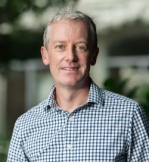 Dr Erik Lithander has had a career in higher education spanning over 20 years across New Zealand, the United Kingdom, Ireland and Australia. He is a former Pro Vice-Chancellor and Vice-President (International and Outreach) at the Australian National University in Canberra and Director of International Affairs at University College Dublin.
Dr Erik Lithander has had a career in higher education spanning over 20 years across New Zealand, the United Kingdom, Ireland and Australia. He is a former Pro Vice-Chancellor and Vice-President (International and Outreach) at the Australian National University in Canberra and Director of International Affairs at University College Dublin.Dr Lithander is currently the Deputy Vice-Chancellor Strategic Engagement at the University of Auckland. Prior to commencing this role in 2021, he was the Pro Vice-Chancellor and Vice-President (Global Engagement) at the University of Bristol in the United Kingdom. Dr Lithander has an internationally focused governance portfolio, with oversight of the Auckland Confucius Institute and previously the North Asia CAPE (Centre for Asia Pacific Excellence). He also is Chair of the Advisory Boards for the New Zealand Centre at Peking University and the New Zealand Centre at the Indian Institute of Technology (Delhi).
-
Marketing development
Education New Zealand’s international staff network works to raise the profile of the country’s education system in priority markets.
Team members can support education organisations with a range of activities, including organising media visits, providing introductions to key contacts and carrying out market research.
On this page:
- International media and key opinion leader visits
- International public relations
- Introductions and contacts
- Ministerial and education trade missions
- In-market support
- In-market initial fact finding
- Identifying new business opportunities
- Market research
- In-market events and conferences
International media and key opinion leader visits
ENZ raises awareness of New Zealand in priority markets by organising or supporting visits from international media and key opinion leaders to different regions, locations and organisations.
International public relations
ENZ’s international public relations activities may include helping to launch new programmes, leveraging in-market visits, promoting scholarships and highlighting student successes.
Introductions and contacts
Introductions and contacts from ENZ’s domestic and international staff network can help match institutions with recruitment agencies.
Staff can also assist organisations to connect with:
- potential partners or customers
- relevant foreign regulatory agencies and authorities
- local market or industry experts
- other specialist external service providers.
Ministerial and education trade missions
Education organisations may have opportunities to profile flagship initiatives during ministerial visits and education trade missions, depending on objectives and scheduling.
In-market support
In-market teams can help support education providers by providing information on the market, leading arrangements for ENZ marketing and promotional activities, and facilitating introductions with local stakeholders.
In-market initial fact finding
ENZ’s international staff network may be able to help with initial fact verification of foreign partners. They may also be able to refer organisations to in-market third parties if more detailed due diligence is needed.
Identifying new business opportunities
International staff may be able to scout for new business opportunities for organisations seeking to develop partnerships or sell products and services.
Market research
ENZ sometimes carries out market research for sector groups or consortiums, or for individual organisations investigating high impact and high growth initiatives.
In-market events and conferences
Education organisations may be given ENZ help to take part in in-market conferences, seminars and events with external partners.

